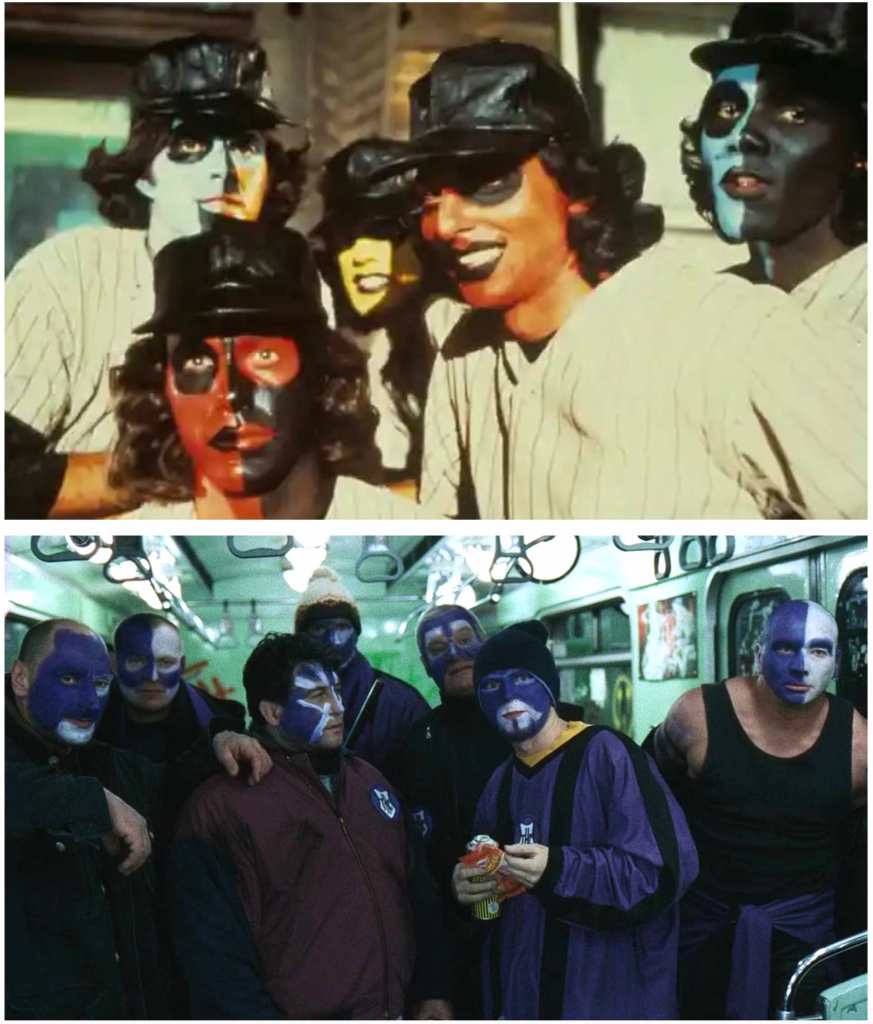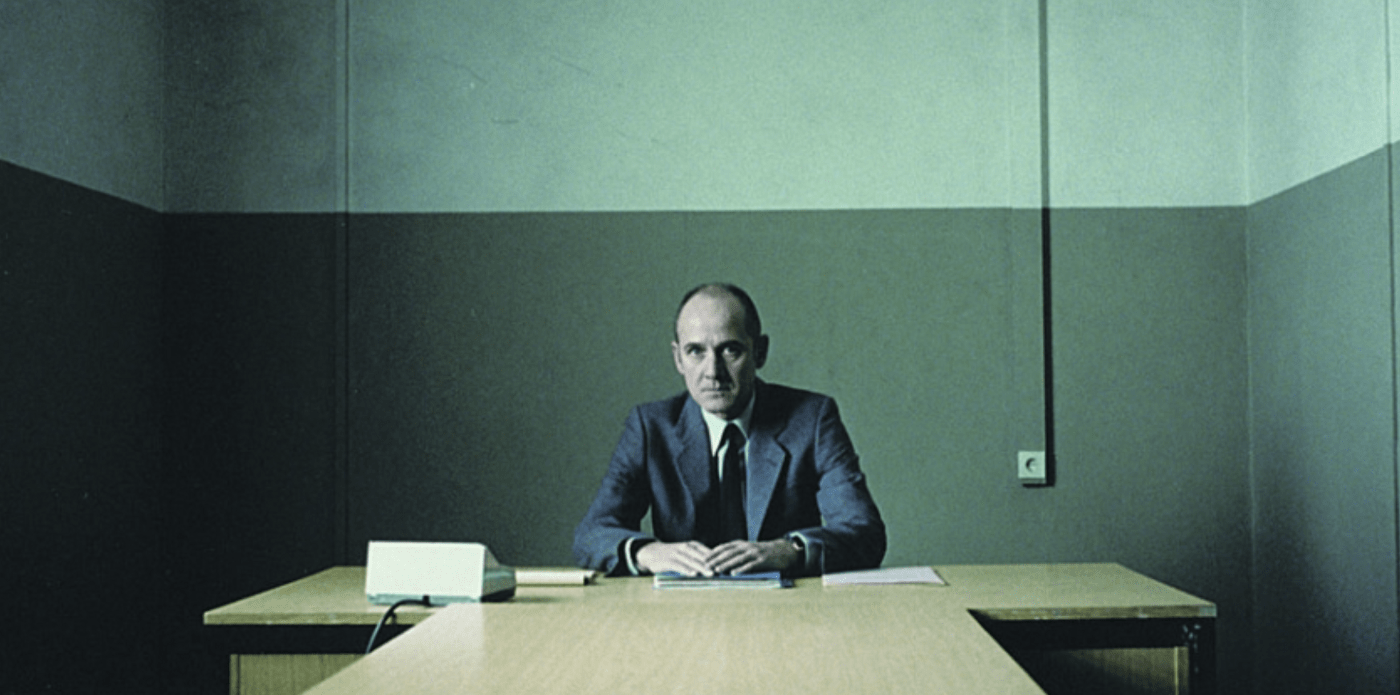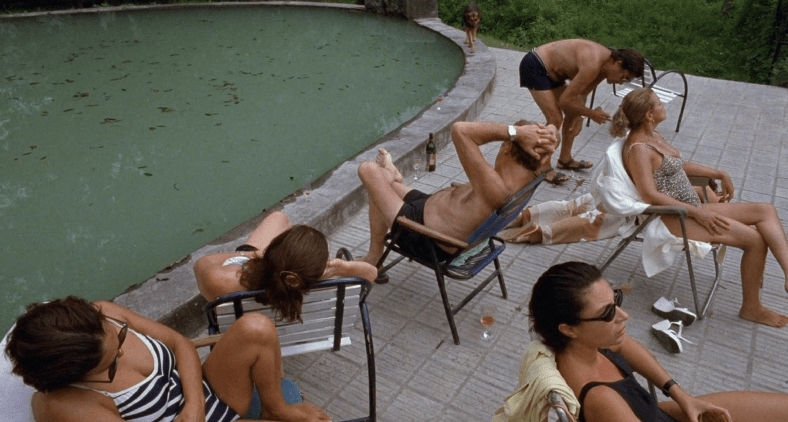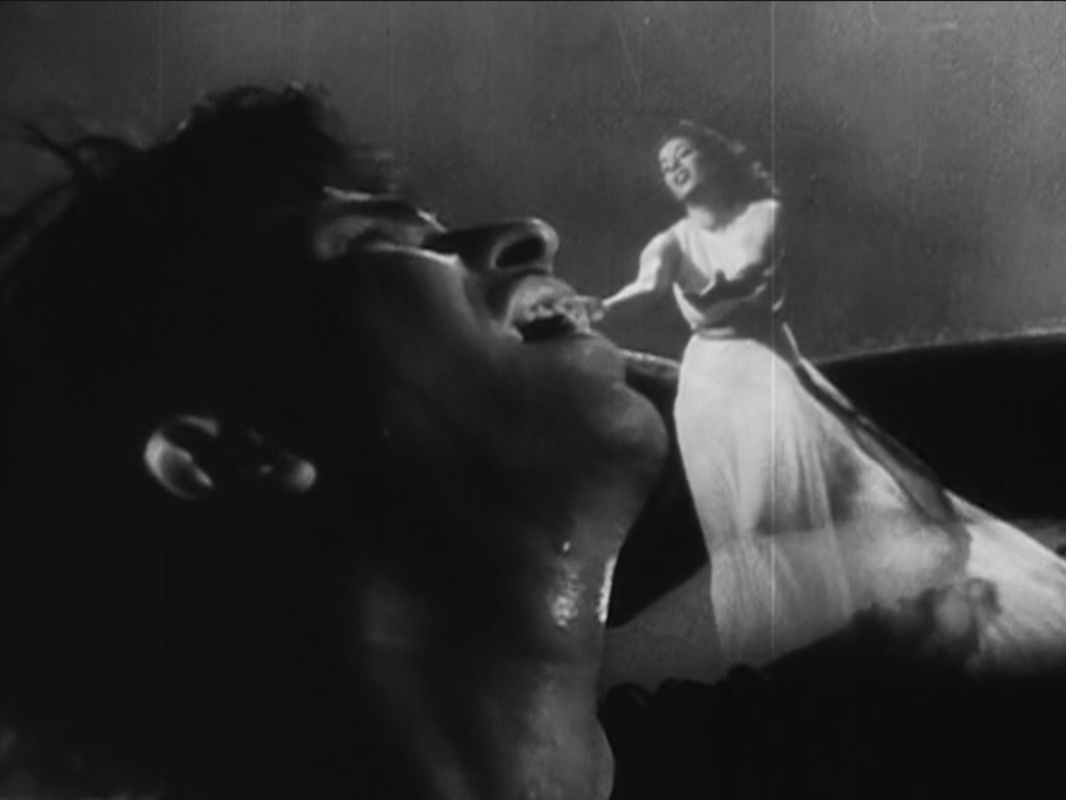
Nimród Antal’s film Kontroll is many things. The first half will have you thinking it's a comedy about rough and tumble misfits trying to make their way in life. We follow small groupings of ticket inspectors as they make their daily rounds in the Budapest subway system. The groups function like street gangs getting into fights with both passengers and other ticket inspectors. There are more than a few times that the film seems like a comic reworking of Walter Hill’s Warriors.
At one point the “gang” we are following ends up on a subway car with a bunch of football hooligans all dressed in colored makeup. As soon as the doors close a bloody brawl erupts recalling the zombie baseball gang who assault the heroes in Hill’s film.

The comic elements are fast-paced and pretty dark. Humor is subjective but there is a lot of well-crafted physical comedy and cartoonish violence that I found hilarious. Added to the comedy is what at first seems like a murder mystery. There is someone dressed all in black and hidden under a big black hood who is sneaking up behind random strangers and pushing them in front of moving trains.
The mystery and the comedy would have been more than enough to justify seeing Kontroll but as the film continues a whole mythological element begins to surface. In Hill’s Warriors, there are several references to Homer’s Odyssey and like The Warriors, Kontrol uses Greek mythology to develop a larger and deeper theme about good and evil and the underworld.

Kontrol begins with a long descent along a giant set of escalators. Instead of Orpheus or Eurydice making the descent, it's a drunk woman wrestling with a bottle of champagne, but the message is clear we are entering a world where the struggles are dark and mythic. A classic clash between the living world of light and the murky underworld that we all fear.
The film doesn’t actually focus in on an individual protagonist until almost halfway through. His name is Bulcsú and he is trapped in the underground. He sleeps down on deserted platforms and stares longingly at the light at the top of the escalators, but something is keeping him underground.

There is a dream sequence that ushers in the second half of the film and makes space for a more serious and symbolic set of images and scenes. In his dream, a sort of spirit guide comes to him and leads him through the tunnels with a torch. It is a tour through Hades in search of evil, or perhaps death, or maybe Charon the boatman who ferries the dead into the afterworld. It becomes apparent that this evil force is the man in black who is pushing people onto the tracks.
As the allegorical and symbolic imagery takes center stage there are references to angels and to what may be Bubo, Athena’s owl of wisdom. The tunnels and stations get increasingly abstract. They look like skulls and halos and mysterious passages to another reality. It is reminiscent of Adrian Lyne’s film Jacob’s Ladder, where everything and everyone that our protagonist encounters seems to be a representative from another world.
Kontroll was Antal’s first film but it exhibits a great deal of finesse and skill. The majority of the film takes place under the ugly greenish glare of fluorescent subway lights but slowly as the film edges toward fantasy, pink and blue lights start to edge their way in to tighten the conflict between the forces of darkness and light. It is not until we actually see daylight that we realize how restricted Antal’s pallet had been.

The stylized and comic dialogue is reminiscent of Jim Jarmusch’s writing in films like Down By Law or Night On Earth. Both directors exhibit an affection for the misfits and oddballs that populate their films. Characters keep making a mess of things and struggling to find a way out of the situations they have created.

The ticket inspectors in Kontroll are a miserable rabble of people who have fallen through society’s cracks and ended up underground working a thankless job where everyone not only looks down at them but actually hates the sight of them. The Budapest subway system runs on the honor system. Inspectors randomly wander the subway asking to see people’s tickets. Most passengers don’t bother to buy a ticket and simply try to avoid the inspectors. In my experience, you can go months without paying for a ticket but eventually, everyone gets caught.
Antal is able to use these gangs of fallen men as a source of comedy, tragedy, and mythology as well as social criticism. All the under and over symbolism easily fits into commentary about social class and laborers. Somehow Antal is able to combine all these disparate themes and genres into a coherent narrative. There is even a little bit of romance just to round it out. It’s not easy to move from murder mystery to slapstick to Greek mythology without the differing facets detracting from each other but Antal manages to create a rich and coherent film that both entertains as well as provides something deeper to dig into.

If you enjoyed this article you might also enjoy - https://filmofileshideout.com/archives/the-balance-of-form-and-content-in-victoria/




Sounds grim and confusing!